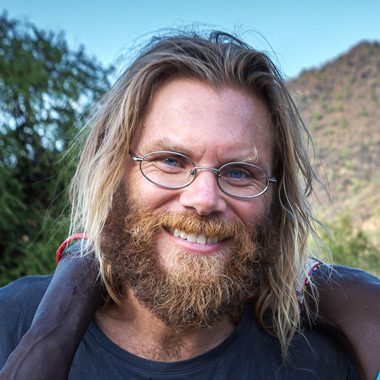The Baka people (Aka is the term used to designate themselves) are a seminomadic ethnic group inhabiting the Central African rainforests. The Baka have a deep relationship with their environment. For the Baka people, the forest is living and communicates with them. The foundation of the Baka is to live in harmony with nature.
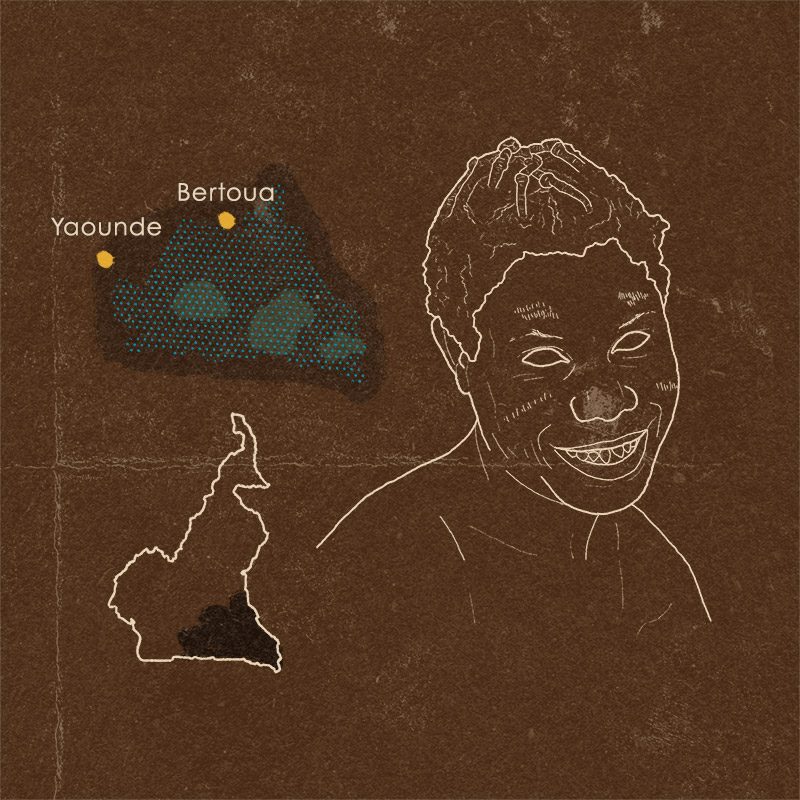
Location of the Baka people in the territory of Cameroon.
Population and environment of the Baka people
Although the Baka people are located throughout different Central African countries, they are mainly concentrated in the southeastern rain forests of Cameroon. There, the Baka people represent roughly 30,000 individuals.
Their knowledge and adaptation to the rainforest far exceed that of any other ethnic group. Until not long ago, other tribes thought (and still do) that the Baka were capable of transforming themselves into animals through rituals and potions.
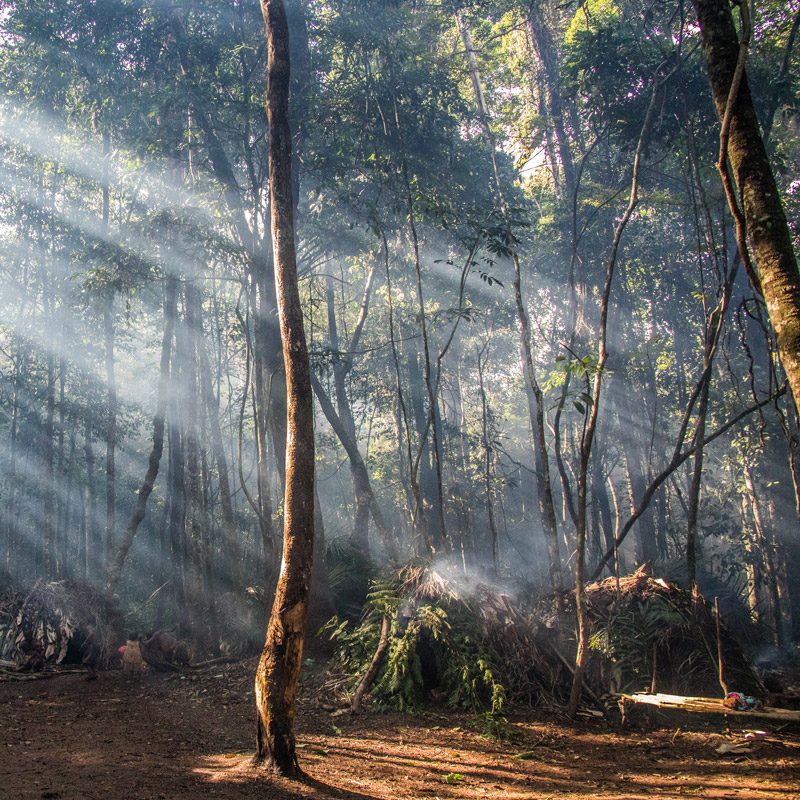
Visit a Baka people village in the rainforest during a trip to Cameroon.
Economy of Baka people
The livelihood of each group depends on hunting, fishing and gathering. The forest provides an abundance of animals, fish, honey, mushrooms, fruits, and nuts. Honey is especially valued by the Baka people. About 30% of their vocabulary is made up of words used to designate plants. Their incredible skills and endurance in the forest make them successful hunters. The Baka people know every plant and recognize every animal track, no matter how small. Using traps, dogs, a spear, and a crossbow, they hunt nearly all animals.
When the Baka have too much food, they either sell it to the Bantu, smoke it to preserve it, or give it to other groups.

Baka woman collecting medicinal herbs in the rainforest of Cameroon.
Do you want to meet the Baka people of Cameroon?
Discover what the life of the Baka people is like inside the rainforest on our trips to Cameroon. Click here to see our upcoming trips to Cameroon.

Meeting with a traditional community of the Baka people of Cameroon.
Social organization of the Baka tribe
The Baka people live in small groups in areas of the forest assigned to each group. These lands are defined by natural borders, such as hills and rivers. Most often, the Baka men are involved in hunting and the women in gathering. The group is communal and makes decisions by consensus; there are no leaders or hierarchies.
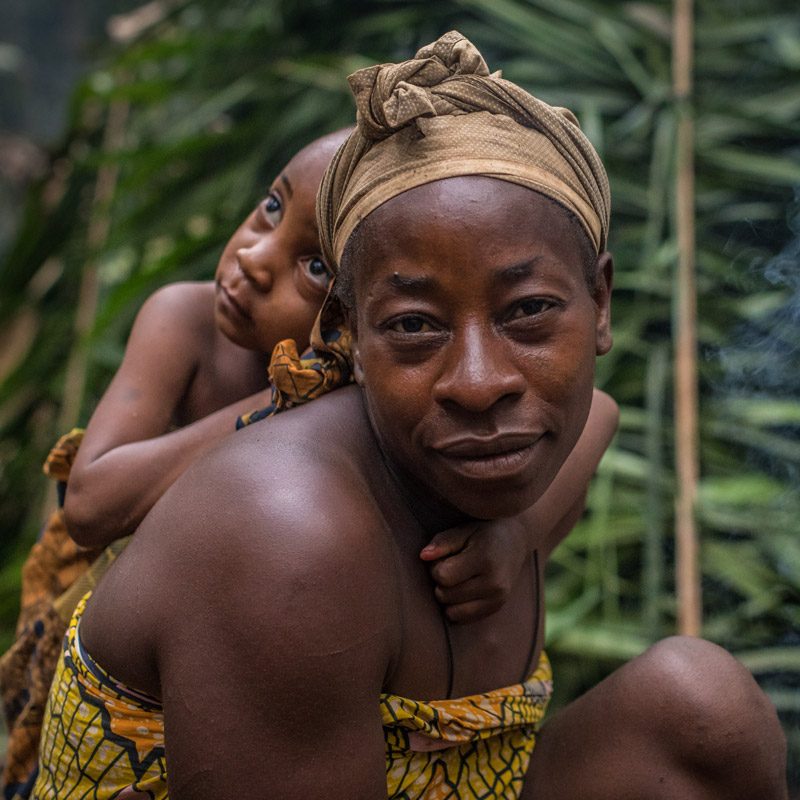
Visit to a Baka village during a trip to Cameroon.
Culture of the Baka people
Music is an important part of the Baka people's lives, and casual performances take place during many of the day's events. Music comes in many forms, including the spiritual likanos stories, vocal singing and music played on a variety of instruments. Polyphonic music is only characteristic of the Baka.
Traditional Baka medicine mainly involves herbal remedies. Various plants may be brewed or mashed into pulp to treat various illnesses or infertility. This traditional medicine is so renowned that even other ethnic groups seek out the Baka healers for treatment.
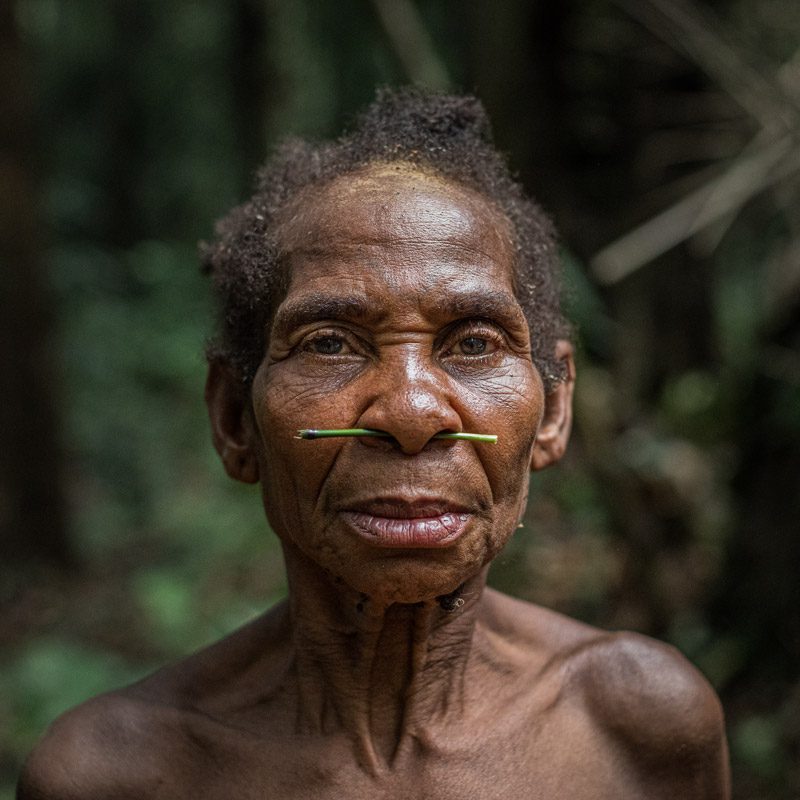
Meeting with a Baka woman wearing a nose piercing during a trip to Cameroon.
Aesthetics and belief system of the Baka tribe
Physical appearance is very important to the Baka tribe. Between the ages of 10 and 20, some members of the Baka people sharpen their teeth for a purely aesthetic reason. For the Baka, sharp teeth make their wearer more attractive. Also, piercing and scarification are performed on the forehead and cheeks for aesthetic reasons.
The Baka tribe worships a forest spirit called Ejengi. This plays the role of the mediator between the supreme being ‘Komba’ and the Baka ethnic group. They believe him to be omnipresent, allowing him to punish transgressors within the confines of the forest. After hunting successfully, the Baka worship Ejengi with Thanksgiving songs and dances in a ritual called ’luma’. These rituals are necessary for the spirit to appear before the Baka, as they believe that he only shows himself when harmony reigns. Ejengi also appears in other important moments in Baka’s life, for example, during the rite of passage.
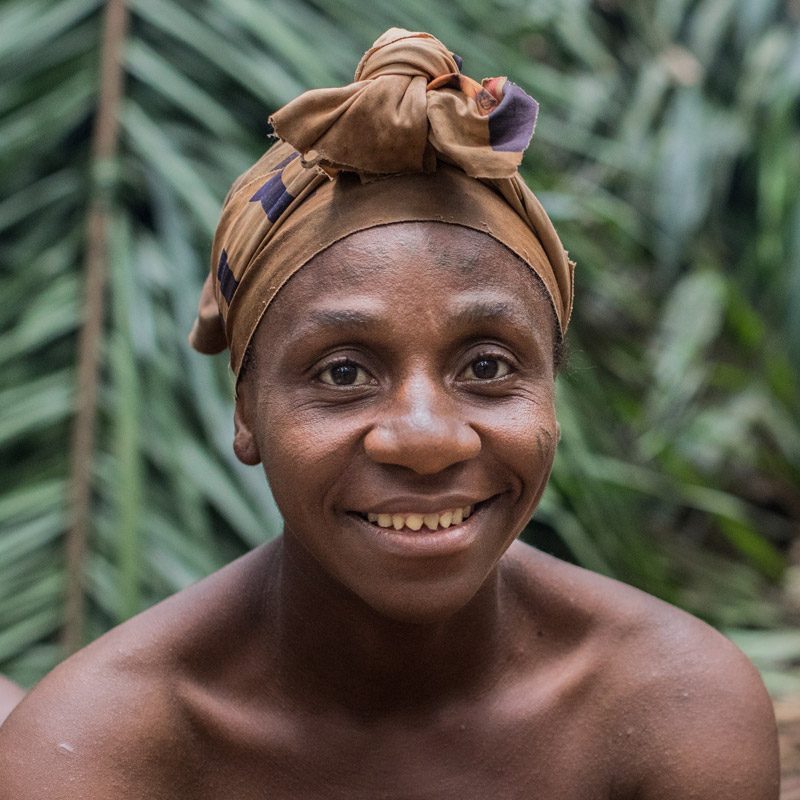
Meeting with a Baka woman with sharp teeth and scarifications during a trip to Cameroon.
Art and architecture of the Baka people
The craftsmen produce weapons for hunting and tools for fishing and harvesting. Also, the Baka people weave clothes, nets and baskets.
The Baka groups establish temporary camps composed of huts constructed of bowed branches covered in large leaves (although today more and more homes are constructed following Bantu methods).

An example of a vernacular architecture-type hut of the Baka people during a trip to Cameroon.
Challenges of the Baka tribe
Deforestation impacts the Baka tribe, as the forest is their home. About 100 instruments that the Baka use daily for cooking, hunting, gathering or rituals have been recorded. 40% of these utensils are made partly or entirely out of natural resources found in the forest. The deforestation can be extremely detrimental to the Baka as they will be destroying the environment on which they so heavily rely for subsistence.
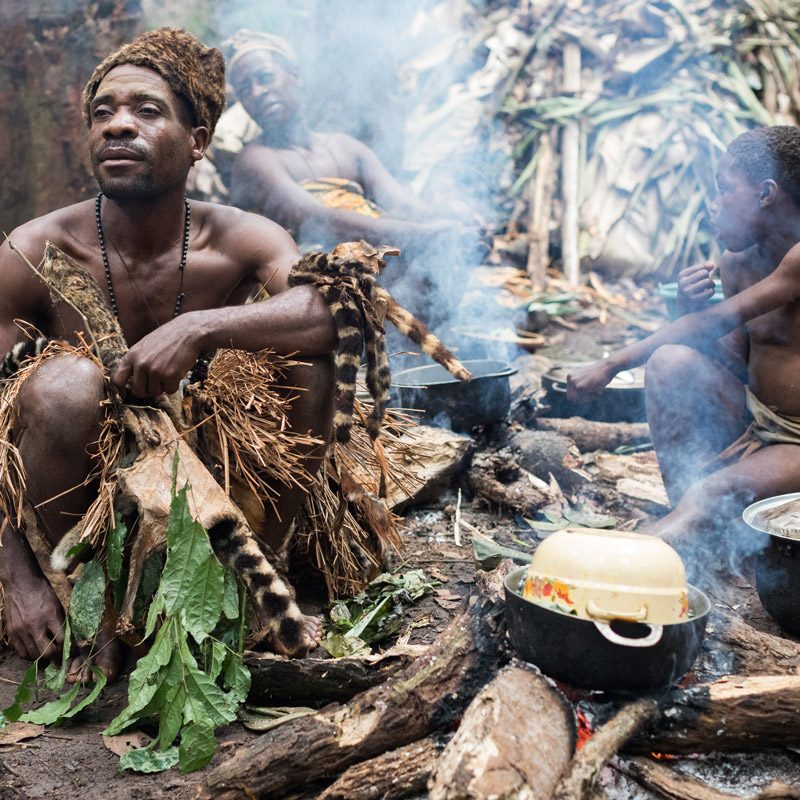
Visit to the Baka tribe during a trip to Cameroon.
You can learn more about the Baka people of Cameroon at www.101lasttribes.com
© Photos by Aníbal Bueno and Jordi Zaragozà Anglès taking during a trip to Cameroon.
